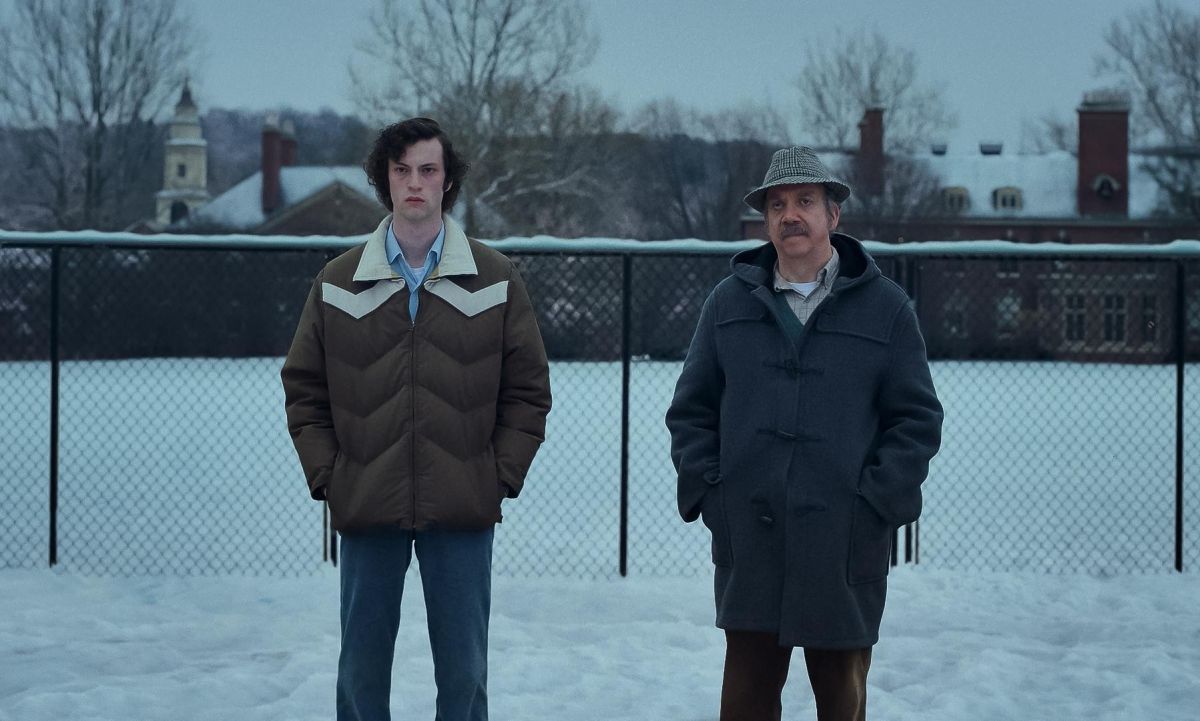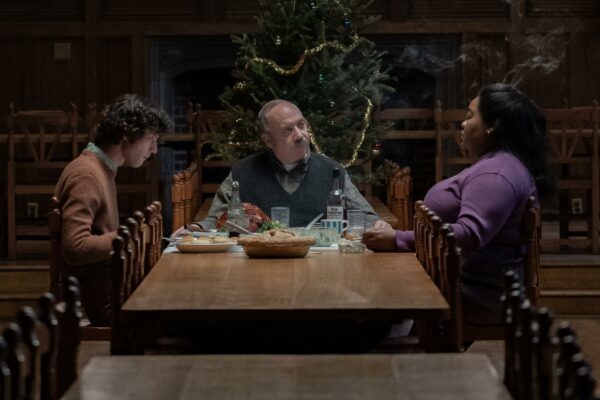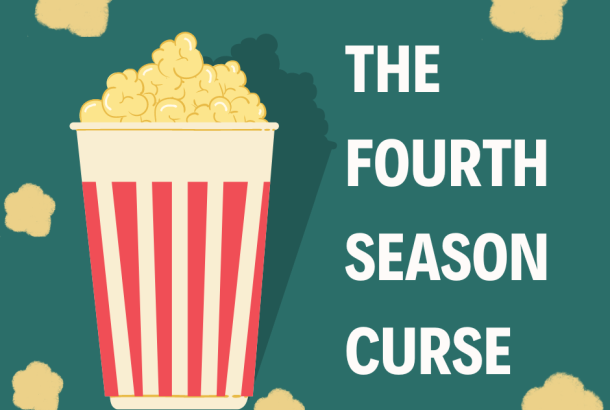The Holdovers, surrogate families and a cinematic trip to Leeds

I journeyed via national express coach upward to Leeds, having been sent there to go to its film festival, attempting to catch the final screening of The Holdovers. Having never been to Leeds, I made sure I strung up there three hours before it was necessary so I could explore the city. But by the time I got there, it was dark, packed like walking through a human sardine tin and scary; I maintain Leeds’ city centre has not been as well designed for walking around as Manchester has been.
I ended up at KFC. Then Taco Bell. A little later I found myself in a strange Spoons, The Hedley Verity, with the most stunning architecture; partly Anglican church, partly Central Perk. The experience was only soured by the loud music blaring, speakers were in every corner, something absent in every other Spoons I’ve ever been in and something I’d always appreciated.
I was not ready for the embarrassment of joining the pensioners in drinking alone, or ready for the frowning expression of pity on the waiter who came to bring me my 2 for £5.75 pear Kopparberg cider. I then made a joke to him about not needing two glasses, nevertheless, he continued to put down both glasses and quickly walked away.
I was left with nothing else to do for an hour and a half but drunkenly read a novel and check on the time, waiting to excuse myself. I was not expecting when I staggered to the cinema, as someone who attempts at all costs to hide from trailers, to meet my twin, my fellow traveller in: the sad, bookish, decrepit alcoholism of Paul Giamatti’s Paul Hunham in The Holdovers.
At the point at which I got to my seat, after being so far from sober I sat in someone else’s and had to be asked politely to move, I was not expecting to be so deeply touched by the film. As someone who can safely claim he is a ‘film nerd’ (freak even, doesn’t go outside), I would describe The Holdovers as The Dead Poets Society if, for the first half of that film, the teacher played by the loveable, charismatic Robin Williams was instead played by a horribly physically and socially disfigured man.
Yet instead of the expected sympathy, it is a point of mockery by the rest of the characters; hated by just about everyone in his miserable life. Both are period pieces, albeit of different eras, set in New England boys’ boarding schools, the home of America’s junior upper class; it’s old money.
The similarities do not end there. In many ways, this film feels like a more honest, less romantic response to that classic, but to mention any more of the resemblances would reveal too much of the plot.
Simply reduced, The Holdovers is a film set in and made to look perfectly like our image of the seventies, about the saddest children of privilege. Those who cannot stay with their families over the long Christmas break are forced to be looked after by the classics teacher so despised by his fellow staff that he also has no choice but to be trapped alongside them as a sort of well-read prison guard. They stay alongside black dinner lady Mary (Da’Vine Joy Randolph) whose son has recently been killed in Vietnam – having been too poor to attend college and, therefore, to be exempt from conscription.

As the film progresses, the movie focuses on the dynamics between Paul, Angus (Dominic Sessa) and Mary. The most hated teacher, the loneliest holdover and the dinner lady grieving for her lost son. Their triangle constructs the film’s key theme of surrogate families. In a similar tone to Alexander Payne’s most recent hit The Descendants, this movie explores the coldness that is created and then insulated by class privilege. The Holdovers does this through the misery of a private school boarding education, in characters so thoroughly alienated yet equally attached to that environment.
Paul was an effectively orphaned scholarship student at Barton before teaching there, himself then the Holdover who never left and who becomes an unwilling surrogate father to Angus. Their relationship in some ways resembles that of Herman Blume and the iconic Max Fisher from Rushmore, as the father figure’s weaknesses and immaturity makes him almost reduced to being his surrogate son’s peer and rival. It becomes clear that Paul and Mary are more to Angus than unwanted servants, forming in their Hogwarts the only sort of family unit he has received in years.
Angus is Mary’s surrogate son as he fills the void where her deceased one should be. Yet this can only blossom when she stops being able to keep a brave face and this tremendous crumbling is so tenderly shown in Da’Vine Joy Randolph’s performance. In not only a film but a year full of particularly outstanding performances, she stands out, especially as such a relative unknown next to Giamatti. More so than its plot, it is its three brilliant lead performances that make this the most sincerely sentimental film to come out of this year’s awards race.
The ever-changing dynamics and revelations between the three throughout the second half of the film cover race, class, romance and mental health better than any film I saw last year.
By using the 1970s setting, it manages to address contemporary America in a way that aesthetically copies 1970s classics and the dark academia genre but moves beyond them politically. All whilst not for a second being preachy about its themes. It’s intellectually engaging without compromising its emotional and entertainment value. This special kind of cinema, that when they are bothered to do it, the Americans do better than anyone else; is an increasingly undesired ‘’product’’ at the box office.
This is yet another reason to support The Holdovers, so films like it, ones that deserve your time, will keep getting made by a dying Hollywood. It’s out now. See it in a cinema if you can and let me know if you cried in public anywhere near as much as I did.
The Holdovers is available in select cinemas
By Will Ardley







